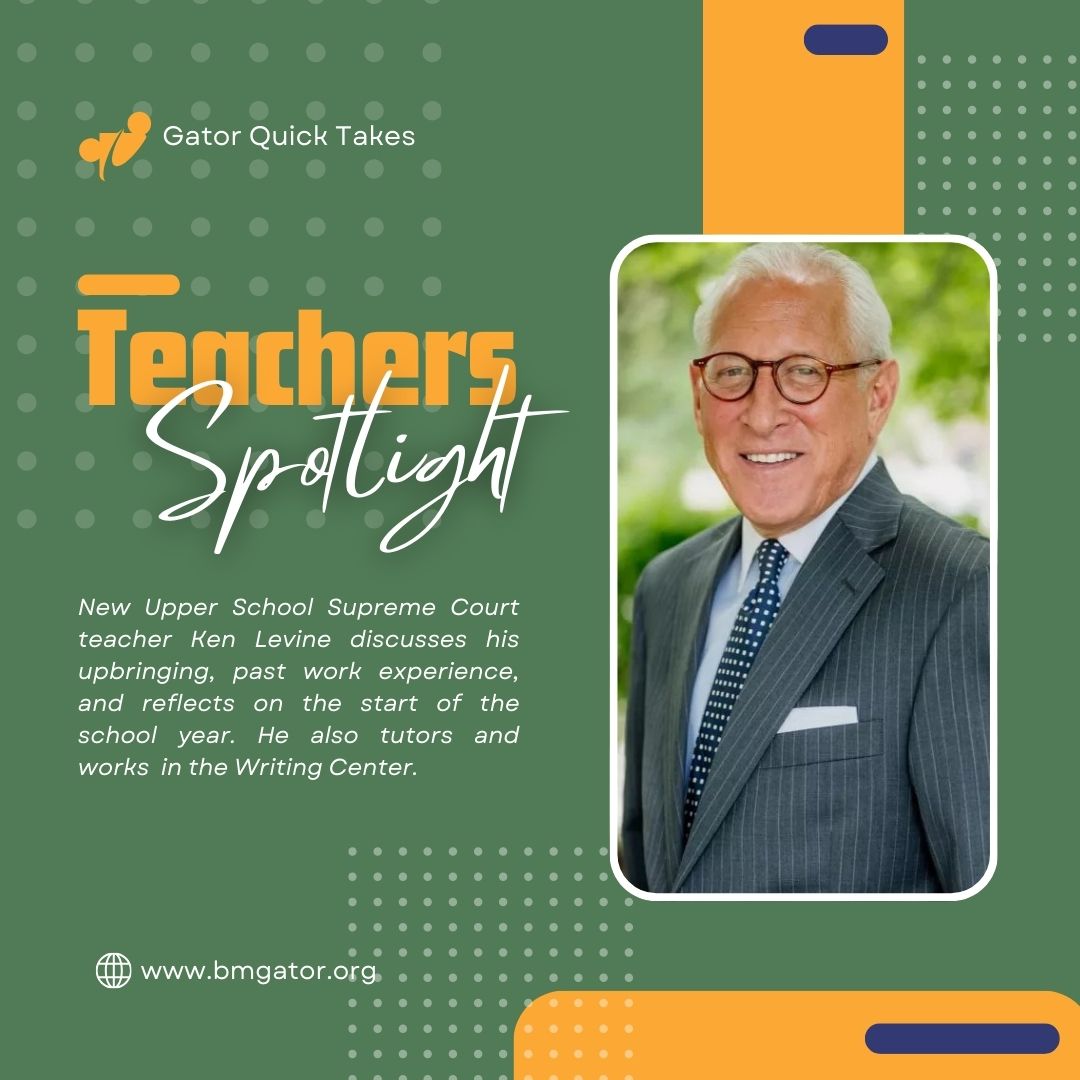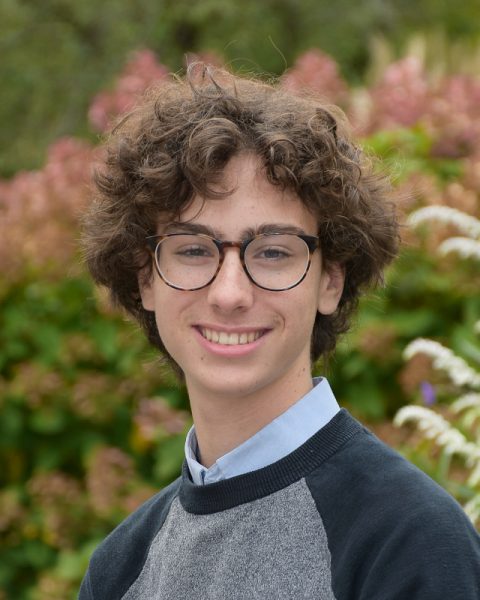
New Upper School Supreme Court teacher Ken Levine discusses his upbringing, past work experience, and reflects on the start of the school year. Levine also teaches in the Writing Center.
What led you to Brimmer?
I answered an ad about some tutoring. The last two years I taught at a charter school in Lawrence. I enjoyed it, but it was a far drive from my house. I still live in this neighborhood. So, I saw this note about tutoring here and decided I’d see what it was about, and came here. And then when I got here, they asked me to teach the Supreme Court class. So that was not the plan immediately, but it’s worked out pretty well.
Tell me a little bit about your upbringing and education.
I grew up in Brighton. My dad didn’t finish high school. He fought in World War II. He came home and raised a family. I graduated from the Boston Latin School. Then I went to Boston College and then I went to law school.
Where have you worked before Brimmer?
Well, when I got out of law school, I clerked for a federal court judge, which is a good spot to do that. When I left the clerkship, I turned down an opportunity to join a large firm in Arizona. And I joined a small trial practice firm because I knew I wanted to be a trial lawyer. And I stayed with them for about three years. The firm was called Fetter and Fetter, two brothers. Brilliant lawyers, actually. And I learned a lot.
Then I came back to Boston when my first daughter was born. And my parents thought Phoenix was a little far away. So, I joined a law firm called Kendrick and Gormley. And we defended medical malpractice cases for the Harvard Medical School and institutions. So that was at the Brigham Mass General. So I stayed with that firm for a few years. I defended medical malpractice cases and defended physicians in hospitals. And I was there for four or five years. And then I was recruited to go. I was still pretty young. I was in my early 30s. I was recruited to head up a trial practice department at a mid- sized law firm in Boston. I did that for only 19 months. And I realized I wasn’t really good for a big firm.
I went and started my own firm. I had my own firm for almost 38 years. Until two years ago. I decided to step away. My practice was a national practice. We had a trial practice. We tried medical malpractice cases around the country. So when COVID happened, I realized I had been gone out of the house for almost six months out of the year every year. So I decided to step away and do less and turn my firm over to the young lawyers. And then I went and I taught for a couple of years before I came here. The last couple of years.
How was the experience of running your own firm?
At the beginning it was very scary. I didn’t have a lot of money. So in the beginning I had to borrow some money to start the firm. And that was very frightening because you didn’t know if you were going to be successful. But I worked a lot. There’s no substitute for success other than working really hard. I had to work a lot. And then in our first year of the firm, I tried a case in Berkshires and got a pretty large verdict. And then we were on our way and did fine. And then my firm grew to be bigger than I wanted it to be. In about, I think at one point we had 10 lawyers, 11 lawyers. It was too many. So I shrunk it back down to where it was a small, more agile trial practice. And for the past, last 15 years of the practice. But yeah, it was fun being my own boss.
How has your Supreme Class and Writing Center been going to work there?
It’s going very well. You know, we’re trying to show, I’m trying to show the students in class that there are not always black and white answers to questions. So we focus more on asking the right questions and understanding that we may not get the answer. We may have different answers, but we have to know how to ask the right questions. And that’s the focus of class, thinking and understanding, and understanding the facts and the law and cases, and trying to understand the outcome.
How has it been working with your students so far?
[They are] smart, bright, willing to take chances and give opinions, not afraid to speak. And that’s essential for a class like that. You have to have students that are not afraid to give their opinion and not afraid that they’re going to be wrong about something because there is nothing wrong. There’s no wrong answer in a class like that. There’s only the answer of the person who’s speaking. So they’re good. They’re courageous, and they offer their opinions to class.
How has the transition into the school year been?
So far it’s been great. The school’s great. Everyone’s very nice. The students are really interesting and smart. Yeah, it’s been a wonderful experience.
Editors’ note: This interview has been edited for clarity and concision.




















































